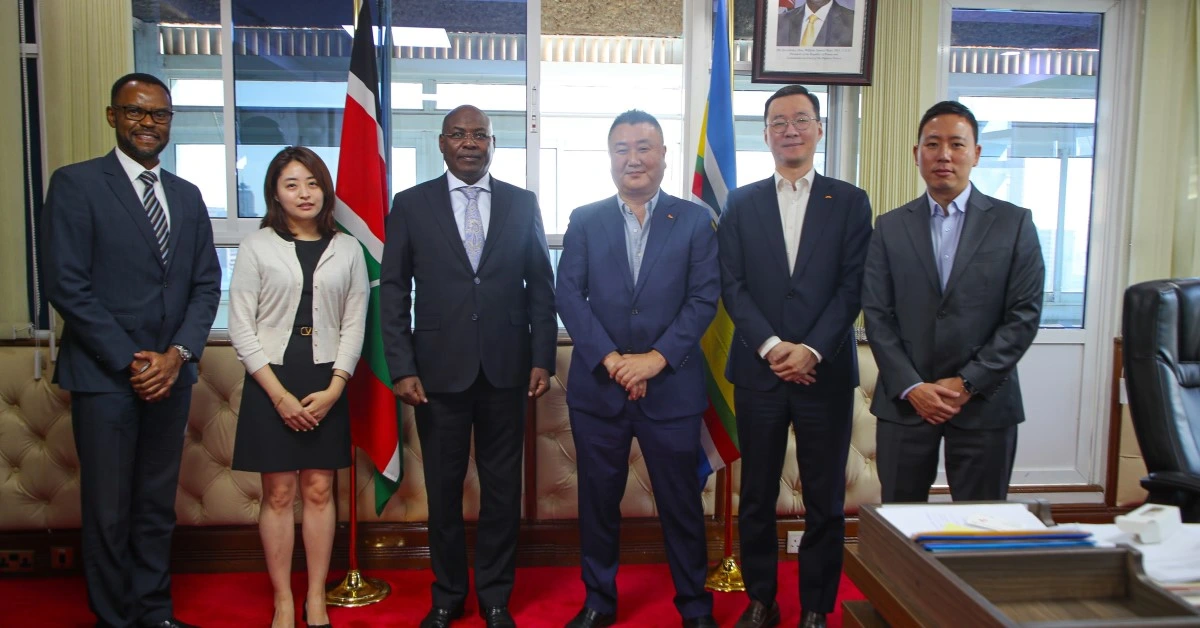
KENYA – A team of experts from South Korea recently visited the Kenya BioVax Institute to conduct a comprehensive feasibility study aimed at establishing a smart vaccine manufacturing facility in the country.
This initiative is a significant step toward enhancing Kenya’s capabilities in vaccine production and addressing local health challenges through innovative technology.
Moreover, the proposed facility seeks to integrate advanced manufacturing processes and state-of-the-art technology, potentially positioning Kenya as a leading hub for vaccine production in Africa.
In addition, this collaboration is expected to boost local manufacturing capacities, improve access to vaccines, and foster regional health security.
Ultimately, this initiative is part of an extensive feasibility study aimed at determining the country’s capability to support advanced vaccine production.
Engaging with local leaders at Kenya BioVax Institute
During their visit to Kenya BioVax Institute (KBI), the delegation met with the institute’s leadership to discuss strategies for enhancing local vaccine production and capacity-building initiatives.
Dr. Serah Muteru, KBI’s General Manager of Regulatory Affairs, highlighted the significance of partnerships in realizing Kenya’s goal of becoming self-sufficient in vaccine manufacturing.
The team also toured Konza Technopolis, where they were briefed on the cutting-edge infrastructure and digital innovations that align with their vision of a tech-driven vaccine production hub.
The proposed facility aims to bolster local manufacturing capabilities, foster innovation, and enhance vaccine security across Africa.
A collaborative approach to vaccine manufacturing
The feasibility study is spearheaded by SK Bioscience, a global vaccine manufacturing leader, in collaboration with AtkinsRéalis, recognized for its expertise in infrastructure and project management.
This partnership is expected to strengthen Kenya’s healthcare sector by introducing modern vaccine technology and manufacturing capabilities.
The collaboration with SK Bioscience provides KBI access to state-of-the-art technology and expertise in high-quality vaccine production, significantly increasing Kenya’s manufacturing capacity and facilitating the development of vaccines tailored to local health challenges.
Strengthening research and development with IVI
The International Vaccine Institute (IVI) joins this partnership to offer research support, vaccine development expertise, and guidance on clinical trials and regulatory approvals.
IVI’s extensive global network will facilitate knowledge transfer, positioning KBI as a key player in Africa’s vaccine landscape.
This initiative not only aims to improve vaccine access within Kenya but also across the continent, enhancing public health outcomes and reducing reliance on imported vaccines. Furthermore, it establishes Kenya as a potential regional vaccine production hub, contributing to economic growth and long-term health security.
Government support and regional expansion plans
During a recent conference in Nairobi, Mr. Harry Kimtai, Principal Secretary for Medical Services, welcomed the SK Bioscience delegation, led by Dr. Mike Ahn, to discuss expanding vaccine manufacturing capabilities throughout the East African Community (EAC) and beyond.
Mr. Kimtai emphasized the vital role of local state agencies, including KBI and KEMRI, in achieving these objectives.
Dr. Michael Lusiola, CEO of KBI, provided updates on the preparations for the local facility and ongoing efforts to develop the necessary workforce.
Commitment to advancing public health infrastructure
This collaboration aligns with Kenya’s broader plan to enhance public health infrastructure and achieve vaccine self-sufficiency.
The current feasibility study builds upon a comprehensive assessment conducted by South Korean experts, aimed at propelling Kenya to the forefront of vaccine production in Africa.
The visit signifies a substantial step in fostering collaborative ties between Kenya and South Korea, particularly in the fields of health, innovation, and biotechnology.
Stakeholders, including top scientists and industry experts, engaged in discussions to explore advanced technologies such as artificial intelligence and automation for optimizing vaccine production efficiency and reducing costs.
If successful, the establishment of a smart vaccine manufacturing facility in Kenya will enhance the country’s role as a hub for vaccine innovation and production, ultimately improving public health outcomes across the continent.
The ongoing feasibility study will investigate the necessary infrastructure, regulatory frameworks, and potential collaborations with local and international entities, further supported by the Kenyan government and South Korean partners.
XRP HEALTHCARE L.L.C | License Number: 2312867.01 | Dubai | © Copyright 2025 | All Rights Reserved